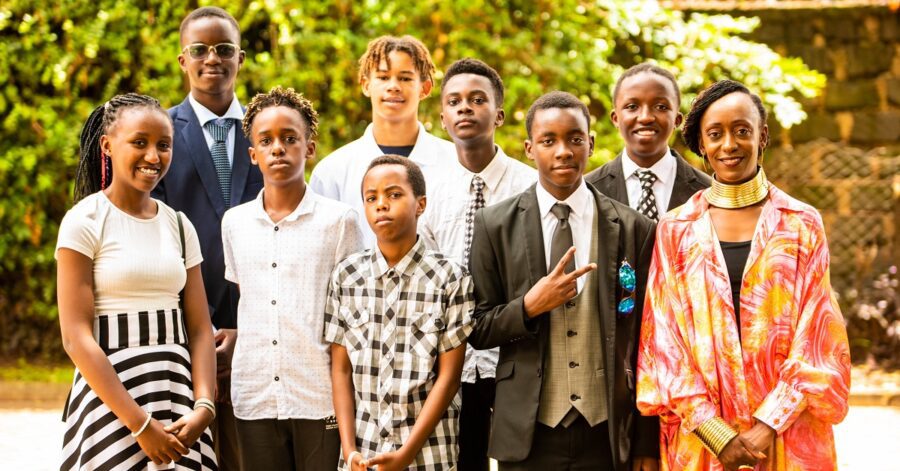Since its legalization in South Africa in 1996, homeschooling has experienced a resurgence, offering families a powerful alternative to public education. In this evolving landscape, one mother’s search for a meaningful education for her children led her down an extraordinary path. Chantelle Miles, a South African parent of ten, shares her journey from initial skepticism about homeschooling to becoming a passionate advocate for classical Christian education. Her story bridges continents, challenging cultural expectations and redefining what it means to educate in the 21st century.
Join us for Chantelle’s inspiring narrative, which not only changed the course of her family’s life but also introduced a new educational paradigm to her community. This blog post offers valuable insights for parents worldwide who are considering their educational options and seeking to instill a love for learning in their children. Discover how embracing the unknown can lead to unexpected treasures in both teaching and personal growth.
The Unexpected Journey: From Germany to Homeschooling
Boarding a flight to Europe, headed for Germany, I had no idea where I was going!
Once I saw the map on the inflight entertainment system, I noticed the little plane travelling to Munich in the south of Germany. I was heading to an unfamiliar destination. Albeit a very common one. The country, nestled between Italy, Austria, and France, was merely a vague figure in the primary school history books I had never read. The business of wars, the people involved and the places affected went right over my head.
Two roads diverged in a wood, and I—I took the one less travelled by, and that has made all the difference. —Robert Frost.
When the road veers off the main track, do you turn off, or do you stay where it’s familiar?
Confronting Educational Doubts: A Mother’s Dilemma
The homeschool journey began with a nagging question: “What reasons would I give my firstborn child when she came home from school, and some kids were doing the things we didn’t want her to do?” If she were anything like me, my explanations would be insufficient. I needed more than a rule; I needed the why, and time was running out—she was set to start first grade. My bankruptcy was not just in the lack of understanding and knowledge but, more importantly, in grasping my purpose.
Why do we do what we do? What do I believe about the world and our place in it?
The unknown was beckoning in answer to many anxious prayers. One day, while driving to work, I heard a woman speaking on Focus on the Family about homeschooling. This was as foreign to me as the idea of having soup for breakfast; it had simply never occurred to me. I had never met anyone who homeschooled; I felt like an unreached people group.
Analysis Paralysis!
If we homeschool, how will we teach our children, and what will we teach them? I am intelligent and love learning, but my experience abroad testified against me. As soon as I started considering the possibility, every conceivable reminder of my inadequacies came to mind, confirming that it wasn’t an option for someone like me. Only trained teachers were qualified to educate our children.
Public school felt like being lost in a crowd, unsure of the direction we were headed, pressured to perform, and trapped on a never-ending hamster wheel. I had a loving family, attended a thriving church, and was in a great school—the best in our city. Yet, as we closed that chapter and headed into the next, I was, as far as preparation goes, unprepared, unqualified, and unequipped. My education had the depth of a puddle!
I could only expect a similar outcome using the same ingredients as were used with me.
Discovering Classical Conversations: A New Educational Frontier
I was introduced to Classical Conversations by a missionary friend from the States.
She had a whiteboard with subject segments written on it in her sitting room: Latin, Science, History, Geography, English, and Math. She spoke of a community she wanted to start and how everyone used the same curriculum. This fascinated me. I didn’t need more; I had been battling the implementation of home education despite my enthusiasm for it.
She brought the gospel to areas in our country, but to me, she also carried something else. Her culture is different from mine. I recognized it much later, after reading about the Mayflower and the Pilgrims. In the US, there is an inborn sense of freedom, a challenge to tyranny, and an openness to self-determination and inalienable rights. We had lived under a totalitarian regime for many years; apartheid ended when I was getting ready for middle school. We did not challenge authority, nor did we doubt the experts. I’m not saying that as a people we are compliant and docile, but we are certainly not as free to consider alternatives as our friends in the States are—more like the elephant held with twine.
Even so, the hope within spurred me on. I wanted the golden goose: a love for learning, a passion for freedom, and a commitment to the pursuit of truth for my children. Determined to see a different outcome for them, I began exploring this strange concept of home education, wholly unprepared for the personal benefits that awaited me.
We tried a couple of programs, from boxed curricula filled with rich literature and checkboxes to more eclectic approaches involving lap books and unit studies. My poor mother-in-law, trained as a special needs educator and passionate about children thriving, must have prayed nonstop for her offspring to survive their mother’s experiments.
The opportunity to start a Classical Conversations community in South Africa was at hand, and we leapt at it.
The Classical Christian Curriculum: Wisdom from the Past
A classical Christian curriculum offers wisdom from our elders!
I have ten children, and whenever I try something new, from sourdough to soap making, I imagine my forebears enduring too much fluff in addition to merely staying alive, which becomes my guardrail against becoming overly delicate or pernickety.
When I realised how simple yet profound this education system is, I was convinced of its value. Stick in the sand is a saving grace. Suddenly, I could offer a robust education to all my children without losing some along the way. This method trained my mind in simplicity and efficiency. I have always prioritised relationships over other aims, but learning how to utilise this method has truly equipped me to have the best of both worlds.
Building Community: The Power of Collaborative Learning
Community is the ground in which character and love are cultivated.
When we homeschool alone, we can still do a fine job, but it is life-giving to do it with others. We trade with others because they possess something of value that we don’t. God made us unique, with varied gifts, especially not to all be alike.
This diversity enriches us and provides for us. People can be messy—parents and their progeny alike—and nothing is quite as inhospitable as a mother guarding her own. It creates the perfect terrain for cultivating love. We need each other, both to encourage and to settle ruffled feathers. I’ve had my fair share of those. In the economics reader; I saw the theory put into practice. In each individual He hand-picked for me, I was being equipped, if I chose to receive the good with the bad. We were made for fellowship and to share; God’s economy is brilliant.
You Don’t Know What You Don’t Know
Discovering new things, making connections, and growing in my understanding has become an unexpected personal treasure. Where learning was a chore during my youth, it is now an adventure. Like Vespucci venturing into uncharted seas, it is a delight to discover new horizons, to embrace failure, and persevere in trying again.
My dad always said, “Darling, you don’t know what you don’t know.”
When we started a family, we didn’t realise it would lead us to take responsibility for the education of our children. We didn’t understand we would serve the Lord with all our heart, mind, and soul, and in doing so, He would reward us with communion with each other and with Himself in the discovery of all He has made. It is the glory of God to conceal a thing, but the honour of kings is to search out a matter (Prov. 25:2); in seeking to know God and make Him known, I have travelled another route, and it has made all the difference.



